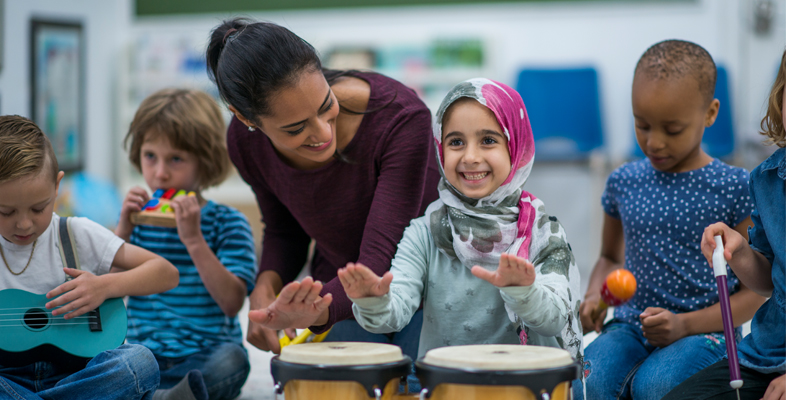2.1 Examples of discontinuity
Physical discontinuities
Were you worried about starting school?
Kiera: Only ‘bout playing in the yard where the big ones [older children] could get me?
Listening to Kiera revealed her fear of spaces and the presence of bigger children. Such fears could be addressed with focused support in ‘the yard’ to build Kiera’s confidence.
Social discontinuities
Mairead’s experience of changing relationships which she expressed by drawing and talking were both exciting and distressing:
…Mairead recalls how ‘my mommy and daddy took me [to school] ...I didn’t ...I didn’t ...I was crying’ [Mairead starts to cry]. Her distress is captured in her drawing which shows her crying on her first day:
Did you know any of the other boys and girls?
Mairead: [Stops crying]. Yes, I remembered Eth.
At this point, Mairead starts to draw again and produces a second, happier picture which she tells us shows her ‘playing with my new friends’
Mairead’s drawings and dialogue suggest that she was actively making new friends, but saying goodbye to her parents had been distressing; a practitioner might focus support on Mairead’s entry to school.
Philosophical discontinuities
Is preschool different from school?...
…Dara: You need to write at big school and you can play at wee school.
…Fay: I hate big school and I loved playschool because you get to paint in play school with toys and all you have to do is colour, you get to paint, eat sweets or take lunch. There’s what I love.
The researchers highlighted that infant classrooms tended to be formal and goal orientated, in contrast to children’s play-based home or pre-school experiences; a discontinuity that the children found undesirable.
